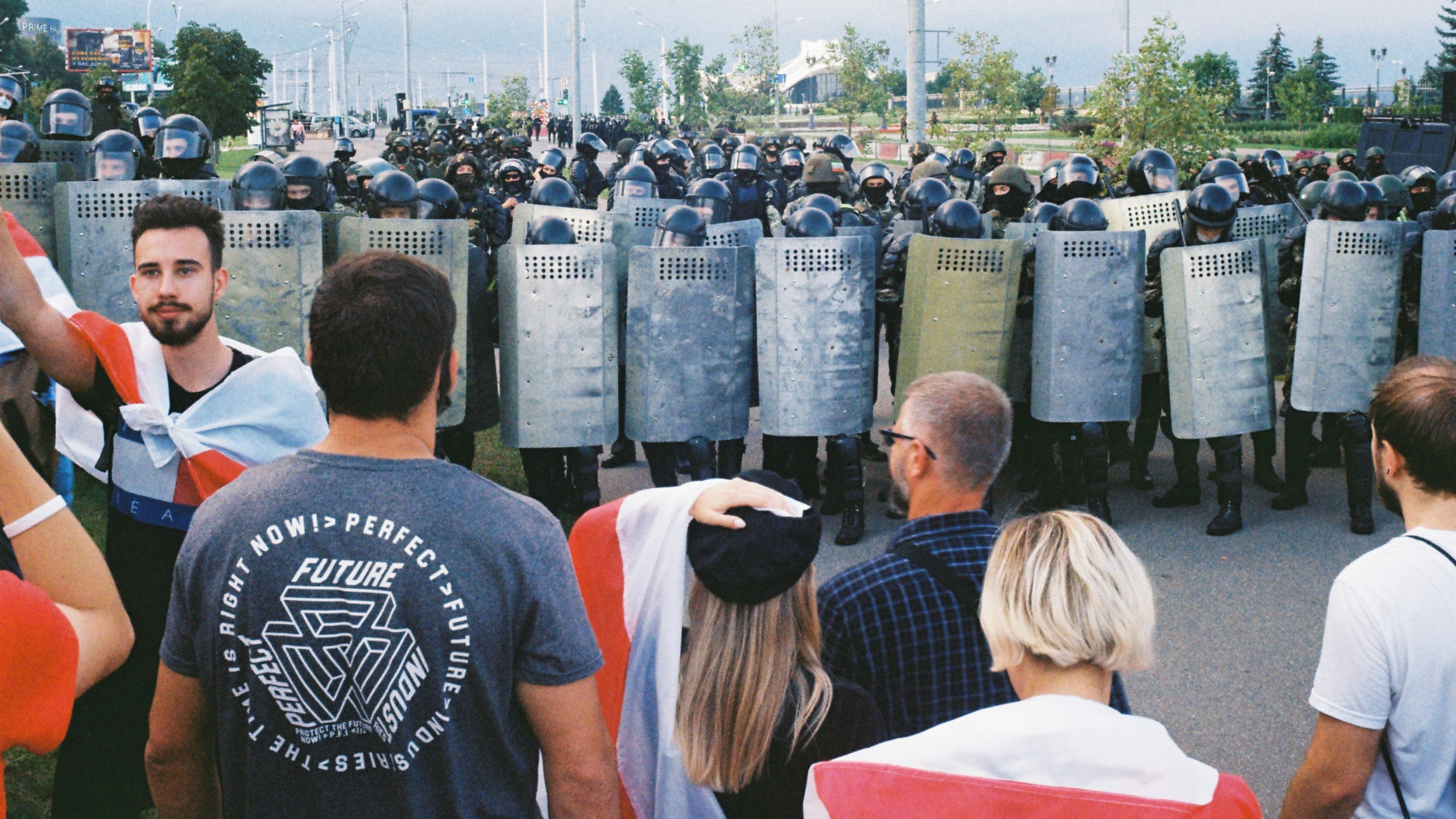Ukraine: what could this mean for Belarus’ civil society?
In this piece our Peace Process Support Coordinator, Alexander Shoebridge reflects on how the events in Ukraine may create unforeseen entry points in Belarus, and can prompt civil society to rethink how they seek to counter the regime.
Few could have predicted what is now unfolding in Ukraine. More than one million people have become refugees in the course of a week and as Ukrainian cities become increasingly under siege Ukrainian civilians – IT specialists, engineers, nurses, and teachers – take up arms to resist invasion. While tension between Russia and Ukraine may have been steadily building for a number of years, the speed in which the situation has evolved is astounding. The range of scenarios and flow-on effects of the war which could emerge in the coming weeks and months is even more mind-boggling, ranging from the opening of democratic space in Russia and Belarus, through to a nuclear winter.
At Inclusive Peace, we think of moments like these as “critical junctures” – moments in time where the status quo is fundamentally challenged and where the range of potential futures is far wider than what could have otherwise been foreseen. In this piece, we reflect on what this moment in time means for civil society actors in Belarus.
While much of the media attention is rightly on Ukraine, the situation in neighbouring Belarus has received less attention. Since August 2020, the Belarusian regime has effectively exercised repression to either arrest political opponents, or force them to flee overseas. At the same time, the regime has moved to consolidate the position of President Lukashenko via a recent constitutional change process which has been seen by many as an attempt to prolong his stay in power, while simultaneously reducing the influence of the country’s Parliament.
In recent weeks, as the country approached the referendum, the Belarusian opposition faced fundamental questions regarding their medium-term strategy and points of leverage going forward.
On Sunday 27th February, as Russian troops continued their invasion of Ukraine, Belarusians went to the polls to partake in that country’s Constitutional Referendum. While the exiled-opposition had previously resisted the urge to call for protests inside Belarus – knowing the likely harsh response from the State’s security apparatus – the events in neighbouring Ukraine (and the role of the Belarusian regime in enabling them) prompted a shift. In a statement prior to the referendum, Svetlana Tikhanovskaya called for protesters to make their rejection – both of the referendum and the war – known. Though it is hard to verify the precise numbers, these calls were heeded by hundreds of Belarusians, marking the biggest public demonstration in more than a year. In Russia, more than 7,000 protestors have been detained across 100 cities, according to OVD (an independent human rights media project). In recent days, there have also been reports of Belarusians sabotaging Russian military equipment through cyber attacks and calls from President Lukashenko to punish any “backstabbing” of Russian allies.
A second shift has also occurred in relation to how parts of the democratic movement have sought to position themselves internationally, from exiled political opposition to an exiled government. While Belarus is currently the host of nascent talks between Russia and Ukraine, the exiled Tikhanovskaya had initially offered to play a mediation role, beating Lukashenko to the punch. Days earlier, Tikhanovskaya and other opposition figures announced the formation of a transitional cabinet as the national authority of Belarus. Other parts of the opposition movement have taken up arms in support of Ukrainian military and “territorial defence” units. These moves reinforced notions of illegitimacy of the current regime, and underlined the interdependent relationship between the current regimes in Minsk and Moscow. The raft of additional sanctions placed on Russia and Belarus may ultimately weaken this symbiotic relationship and simultaneously undermine the current political economy status quo within both countries. Such a set of circumstances would have been unthinkable just a few weeks ago.
One must not (and can not) lose sight of the tremendous human tragedies which have been experienced over the past week (and, sadly, will most likely continue for sometime, and long after the guns have fallen silent). At the same time, the possible futures that lie ahead present entry points to change the status quo in Belarus in ways which would have been impossible to imagine.

